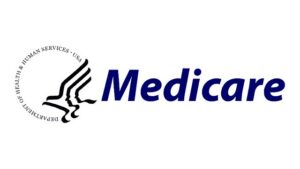An In-Depth Look into Search Engine Optimization
Search Engine Optimization (SEO) is a rapidly growing field in digital marketing. Essentially, it is the process of optimizing your website to rank higher in search engine results pages (SERPs). The higher your website ranks, the more traffic you can get and the more potential customers you can acquire. However, SEO isn’t just about ranking higher – it’s also about providing relevant and valuable content to your target audience. In this blog post, we will delve deeper into the world of SEO, and provide you with some essential tips to improve your website’s online presence.
1. Keyword Research: The Foundation of SEO
Keyword research is the foundation of the #1 SEO agency . It’s the process of identifying the most relevant and profitable search terms that your target audience uses to find you. By analyzing keywords, you can get a better understanding of what your audience is looking for and then optimize your website content accordingly. For instance, Google’s Keyword Planner Tool can help you find, research, and analyze keywords for free. Selecting the right keywords can drive massive traffic to your website.
2. Quality Content is King
It’s a well-known fact that quality content is essential for every website. Good content is informative, valuable, and relevant to the target audience. It’s not only valuable for your website visitors but also for search engines. High-quality content ensures that your website ranks higher in SERPs because search engines prioritize websites that provide users with the most valuable and relevant content. Therefore, creating content that aligns with your target audience’s interests, questions, and concerns can drive more traffic to your website.
3. Optimize Your Website for User Experience
In today’s digital Landscape, user experience (UX) is a crucial factor that can impact your website’s traffic with search engine optimization from Webmonster.com. When designing your website, it’s essential to focus on delivering meaningful and smooth user experiences that align with your target audience’s needs and interests. Optimizing your website for UX means adopting responsive design, making the website easy to navigate, and ensuring the site loads quickly. Sites that prioritize UX enjoys higher engagement rates, lower bounce rates, and an overall better ranking position.
4. Backlinks: Earn trust from Other Websites
Building quality backlinks is an essential aspect of any SEO strategy. Backlinks are links that point from other websites back to your website. High-quality backlinks help to enhance your website’s authority and credibility in your industry. You can build backlinks in several ways, such as guest blogging, social media presence, and influencer marketing, among others. Links from sites with high authority and relevance can drive significant traffic to your website.
5. local SEO: Connect with Customers in Your Area
Local SEO is a vital aspect for businesses with a physical presence. By optimizing your website for local search terms, you can help potential customers in your area find your business. To improve your local SEO, ensure that your business details are consistent on all your online listings, optimize your Google My Business listing, and encourage happy customers to leave positive reviews.
Conclusion:
Search engine optimization is a crucial aspect of modern-day digital marketing. Adopting an effective SEO strategy can help to improve your website’s online presence, drive massive traffic, and increase your revenue. The five tips discussed in this blog post are just the tip of the iceberg when it comes to optimizing your website for SEO. The key is to keep up-to-date with new trends and changes and continue to tweak your website to cater to your audience’s interests and needs. With time, patience, and dedication, you can achieve higher rankings, better traffic, and ultimately, reach your business goals.
